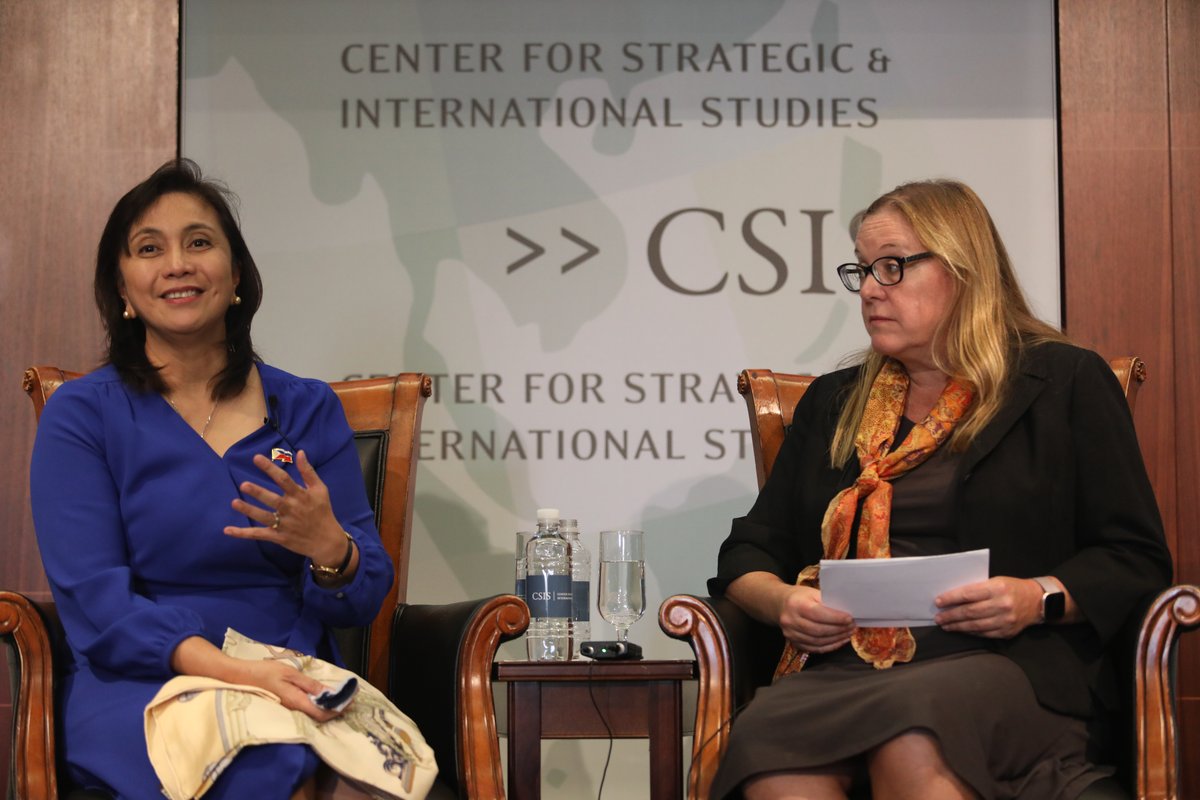China’s “aggressive expansionism” must be met with diplomatic resistance if it puts at risk the principles of international law, Vice President Leni Robredo has said.
Speaking at the Center for Strategic and International Studies-Pertamina Banyan Tree Leadership Forum in Washington DC on Thursday (Manila time), the Vice President acknowledged that China has a crucial role to play in Asia’s economic prosperity but this could come with consequences.
“The rise of China will no doubt usher in a new era of prosperity in Asia but aggressive expansionism that threaten to trample on the sacred precepts of international law and done at the expense of smaller, less powerful nations must be at all times be met with diplomatic resistance,” she said, as she reiterated the country’s commitment to rules-based order in the region.
The Philippines has forged closer ties with China in order to bag economic and business investment opportunities despite the latter’s continued maritime assertiveness and militarization of its controlled features in the West Philippine Sea (South China Sea), with some within the country’s exclusive economic zone.
President Rodrigo Duterte has earned criticisms for his less confrontational stance on the sea dispute and his decision to set aside the arbitral court ruling in 2016 that declared China’s nine-dash line claims in the South China Sea as invalid, in exchange of investments and a possible joint development in the contested waterway.
As part of its growing influence worldwide, China has pushed for initiatives to refashion the global economic order with its offer to finance infrastructure investments to many countries, especially those that are financially unstable, putting them at risks of potential massive debt.
There are fears that China is using these projects to gain foothold in strategic areas as they lure vulnerable countries into debt traps. Malaysia, for instance, recently decided to renegotiate its multibillion-dollar infrastructure projects with China amid concerns of possible bankruptcy.
But Robredo is confident that despite public debates on the maritime dispute, the country’s diplomats and military are doing their best to protect the Philippines’ interests in the West Philippine Sea.
“I think what’s causing fear among many Filipinos is the public rhetoric that’s being used. There’s a fear that were relegating to the margins the gains that we’ve had when we won the arbitral tribunal ruling. Despite the public rhetoric, I think the government is doing all it can to thwart further threats in the West Philippine Sea or South China Sea,” she said.
“Everytime there’s a news of incursion, we push the government to issue a public protest. But I think the men and women of the DFA (Department of Foreign Affairs) and AFP (Armed Forces of the Philippines) have been doing all they can to make sure the decision of the UN tribunal is given spirit,” she added.
The Vice President said the Philippines has taken steps to better defend its interests in the contested waters by starting the long overdue repairs of Pagasa Island (Thitu) and other outposts in the Spratly Islands, a regular meeting of an interagency task force to tackle strategies and issues related to the West Philippine Sea, and stepped up aerial and sea patrols. /kga


